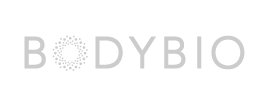In part one we’ll delve into ‘Women, Hearts and Hormones’ – new understandings of the foundations of female cardiovascular health and the impact of menopause both directly and due to the relationship of estrogen with the gut, the immune system and circadian rhythm and how they interact to impact female cardiometabolic status.
Key learnings:
- Understand the surprising link between reproduction and cardiometabolic health, recognizing the profound and enduring role of estrogen.
- Recognize the impact of estrogen directly and indirectly on all cardiovascular structures, and the profound implications of menopause on female cardiovascular wellbeing.
- Understand the relationship of estrogen, the gut, the immune system, and the circadian rhythm and how they interact to impact female cardiometabolic status. Review the critical importance of nitric oxide and its relations to cardiovascular health.
- Learn how to implement effective strategies to help menopausal women maintain cardiovascular wellness and metabolic homeostasis, through the application of hormonal therapy, nutritional medicine, time restricted eating, stress reduction, sleep quality, and efficacious supplementation.
In part two we’ll explore the ‘Rhythms of Women’ – Understanding the link between estrogen, the circadian rhythm and metabolic health and why this is important for reproductive success and enhanced survival and what to do at the onset on Menopause to ensure proper functioning of the ‘master clock’ and also the ‘peripheral clocks’.
Key learnings:
- Understand the rhythms of all life forms on earth, and the purpose for the rhythms – to optimize survival and successful reproduction.
- Recognize the critical importance of a healthy circadian rhythm and its relationship with metabolic homeostasis, reproductive success, and enhanced survival.
- Learn how estrogen and the circadian rhythm are linked and of the major role played by estrogen and the maintenance of the master clock.
- Acquire the knowledge and skills needed to promote the proper functioning of the master clock in your women patients, who are all ultimately faced with the loss of ovarian estrogen production with the onset of menopause, and with exposures to the ubiquitous endocrine disruptors now enveloping us all.
- Acquire protocols to maintain a properly functioning circadian rhythm through application of nutritional medicine, time restricted eating, fasting, and nutritional supplementation.











































